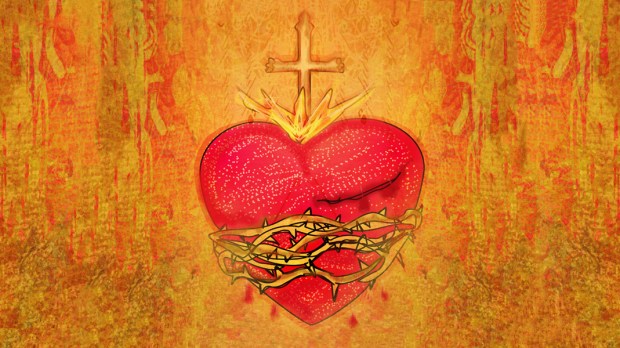Lenten Campaign 2025
This content is free of charge, as are all our articles.
Support us with a donation that is tax-deductible and enable us to continue to reach millions of readers.
Then the scribes and Pharisees began to ask themselves,
“Who is this who speaks blasphemies?
Who but God alone can forgive sins?”
Jesus knew their thoughts and said to them in reply,
“What are you thinking in your hearts?
Which is easier, to say, ‘Your sins are forgiven,’
or to say, ‘Rise and walk’?
But that you may know
that the Son of Man has authority on earth to forgive sins”–
he said to the one who was paralyzed,
“I say to you, rise, pick up your stretcher, and go home.”
(Luke 5:21-24)
It is a question that can indict us at any moment: “What are you thinking in your heart?”
We too often carry about a heart full of darkness, cynicism and snark, one all-too-eager to commence scoffing, and disappointed if the opportunity to do so is snatched away by reason or belated compassion.
What were the Scribes and Pharisees thinking, in their hearts?
It’s very likely they were thinking, “Who does he think he is, forgiving sins? Only God can do that!”
And perhaps they were thinking, “Who are these presumptuous creatures, coming in from the roof, so certain that their friend, this nobody, deserved such notice?”
We can imagine them thinking that way, because it is so typically how we think:
- “Who does she think she is?”
- “What makes him think he has this coming to him?”
- “How dare they push themselves forward, as though they are so much better/more important than others.”
And of Jesus: “Look at him; attracting attention to himself. Look at him playing to the crowds, and contradicting authority and convention …”
It’s unlikely the churchmen were thinking, “Could this be the Messiah, of whom scripture has foretold, saying the deaf will hear, the lame will walk?”
Even among the crowd of people gathered hoping to get something for themselves — or simply to see something sensational — did more than a few ask themselves, “Is this rabbi the Anointed One?”
Because even for believers it’s often hard to comprehend holiness in our midst, especially when it looks so ordinary and human.
We put a lot of expectations upon holiness. We assume it will behave a certain way, use specific words, and never, ever bear a hint of “scandal” about it. We think we know what holiness would and should look like. All the rules and courtesies seen to — few egregious offenses, seldom even a mistake either in action or understanding.
The Scribes and Pharisees were that way (‘Thank you, God, that I’m not like … that guy“), and we tend to feel pretty good about ourselves in comparison to them. We believe that had we been there, we’d have at once recognized Jesus’ holiness and his Godhood.
Well, maybe. But how often do we approach Jesus at Mass, annoyed with someone who sits next to us, or in the pew ahead of or behind us? How often do we return to our seat, completely unmindful of Who and What we have just taken into our bodies — much more than bread and wine — or of the commingling of Flesh and Blood being joined to our own?
What are we thinking in our hearts in that moment? What are we thinking in our hearts most of the time?
It’s an important question Jesus is asking us as we journey toward Bethlehem.
I welcome you, Lord, and thank you for your coming to me, even into the shambles of my distracted, often inexcusably annoyed life. Please heal my brokenness and strengthen me, that I may do your will. If this prayer is pleasing to you, Lord, seal it upon my heart, that it may be alive to me in every spare minute. In this way, your world will come look very different to me, and the holiness it contains — the holiness you can inspire within anyone, at any time — will be so much more obvious, and therefore, more humbling to my pride. Come, Lord Jesus, and heal my soul.
~
Aleteia is bringing you reflections — Advent Light — for each day of this 2017 liturgical season. Follow the series here.

